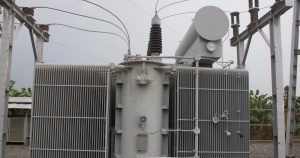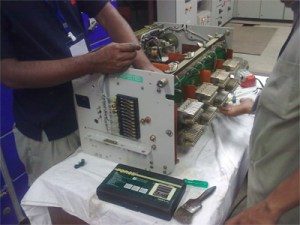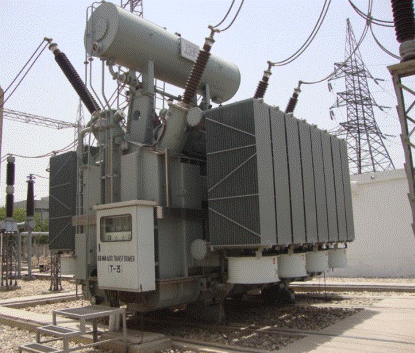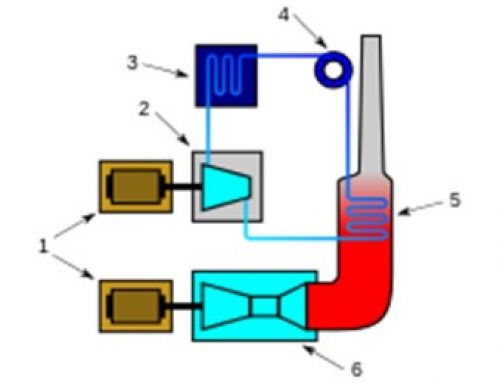Project Description
Why attend
The course deals with protection systems from a practical perspective, and includes important functional aspects such as testing and coordination of protection systems. It is specially designed for industries and utilities, which depend on proper system protection for operational efficiency and minimizing damage to equipment. Protection of low, medium and high voltage power systems requires an understanding of system faults and their detection, as well as their safe disconnection from the power system.

Course Objectives
By the end of the course, participants will be able to:
Employ systematic techniques in power system protective relaying and identify the different types of power system faults including their causes, effects and detection.
Define the components of protection schemes including the application of programmable Logic Controllers, circuit breakers, current and voltage transformers.
Define the various types of current transformers & voltage transformers, application requirements of C.T.’s for protective relaying and accuracy classifications.
Debate the power system neutral grounding for industrial plants and high-voltage substations, calculate ground-fault current and explain the reasons for limiting generator ground-fault current to a low value.
Demonstrate the ground potential rise during power system faults which includes the hazards to individuals working in electrical substations, effects of ground-potential-rise (GPR), effects on telecommunications equipment, etc .
Employ the proper feeder overcurrent protection, protective relaying requirements for radial systems, relay setting criteria, load limitations and testing of overcurrent protection scheme.
Identify the proper coordination of electrical protection systems, bus protection, motor protection, starting and control.

Who should attend
The course is proposed for engineers, designers, supervisors and other technical staff in the industrial, consulting, and utility fields involved in design, regulatory inspection, operation and maintenance who require knowledge of electrical power system protective relaying techniques. The course will also be very useful to those generally knowledgeable in protective relaying, but who may require a refresher or update.
Course Outline (not inclusive)
- Different Types of Faults -Incidence of Faults on Power System Equipment –
- Effects of Power System Faults -Causes of Power System Faults Magnitude of Fault Current –
- Detection of Faults -Clearance of Faults-Requirements of Protective Relaying Systems,
- Components of Protection Schemes Fault Detecting Relays-
- Various Types of C.Ts V.T.’s & C.V.T.’s –
- Theory and Characteristics of C.T.’s Application Requirements of C.T.’s for Protective Relaying –
- Accuracy Classifications –
- Future Trends in C.T. Design using Optics -Testing of C.T.’s and V.T.’s
- An Overview of Power System Neutral Grounding –
- System Grounding as Found in Industrial Plants and High-Voltage Substations –
- Ungrounded Systems -Resistance Grounded Systems -Reactor Grounded Systems –
- Solid or Effectively Grounded Systems -Resistance Grounded Systems in Industrial Plants -Calculation of Ground
- Hazards to Individuals Working in Electrical Substations-
- Substation Grounding System Fundamentals -Step Voltage, Touch Voltage, Mesh Voltage –
- Tolerable Limits of Body Currents During Power System Faults –
- Calculation of Allowable Step and Touch Potentials -Effects of Ground- Potential-Rise (GPR) –
- Protective Relaying Requirements for Radial Systems-
- Elements of Feeder Protection Schemes -High-Set, Low-Set and Inverse-
- Timed Elements-Directional Overcurrent Relays -Coordination with Other Devices and Fuses –
- Various Types of Overcurrent Relays -Electromechanical, Electronic & Digital Relays –
- Relay Setting Criteria -Load Limitations -Testing of Overcurrent Protection Schemes –
- Microprocessor-Based Feeder Overcurrent Protection Relays-Features, Applications and Testing
- Fuse to Fuse -Circuit Breaker to Fuse -Fuse to Circuit Breaker –
- Computer Software Packages for Protection Coordination Studies-
- Auto-Reclosing of Circuit Breakers- Back-Up Protection-
- Limitation of Fault Current -Selective Zones of Protection
- Types of Bus Protection Schemes -Basic Concept of Differential Protection-
- Application to Various Bus Configurations -Application of High Impedance Relays –
- Relay Setting Criteria -Testing of Bus Protection Schemes
- Data Validation and Reporting
- Measurement Uncertainty
- Summary Recommendations
- Applicable Motor Standards-Methods of Starting –
- Differential Protection, Phase Unbalance, Overcurrent –
- Ground Fault Protection -Electrical Code Requirements -Microprocessor-
- Based Motor Control & Protection Devices Break
- Overcurrent and Ground Fault Protection -Application of Differential Protection to Transformers –
- Gas Relays, Pressure and Gas Accumulation -Restricted Earth Fault Protection Winding Temperature and Oil Temperature Devices –
- Testing of Transformer Protection Schemes -Modern Microprocessor-
- Based Multi-function Transformer Protection Relays-Functions Available, Applications and Testing-
- Analysis of Transformer Oil for Dissolved Gases
- Differential Protection -Reverse Power,
- Stator Ground, Out-of-Step, Loss of Field-
- Field Ground, Overexcitation, Interturn, etc
- Protection Requirements for Non-Utility Generating Stations-
- Requirements for the Interconnection NUGS to Utility Power Systems-
- Typical Protection Schemes for Non-Utility Generators -Low-Cost Microprocessor-Based Multi¬
- function Relays for Small Generators –
- Breaker Failure Protection –
- Testing of Utility Tie Protection Schemes
- Interconnected Systems with Two-Way Flow of Fault Current –
- Distance or Impedance Protection Schemes -Phase Comparison Protection Schemes –
- Line Differential Protection Schemes Communication Channel Requirements between Terminals –
- Coordination and Transfer-Tripping Between Terminals-
- Modem Microprocessor-
- Based Line Protection Relays-Available Relays, Features, Applications and Testing
- Application of Static Capacitors on Power Systems-
- Description of Protection Schemes Used –
- Testing of Capacitor Protection Schemes –
- Microprocessor- Based Capacitor Protection and Controls Relays
The workshop
This interactive training course includes the following training methodologies as presented on the next column based on percentage of the total tuition hours:
Lectures
Workshops & Work presentation
Case Studies & Practical Exercises
Videos, Sofware & General Discussion
The course instructor may modify the above training methodology before or during the course for technical reasons with no prior notice to participants.
Falcon Consulting Professionals is established in Greece for the last 15 years in the areas of technical consulting and professional training for the local industries. Falcon is expanding in GCC, aiming to provide the best consulting and training solutions to the industries of the region. Falcon’s instructors are accredited trainers and highly experienced in their fields, as well as adult training. We aspire to build our business relationships on mutual trust. The achievement of results with an emphasis on innovation and sustainability, quality, cost analysis and time scheduling are non-negotiable from the conceptual phase of the training.





